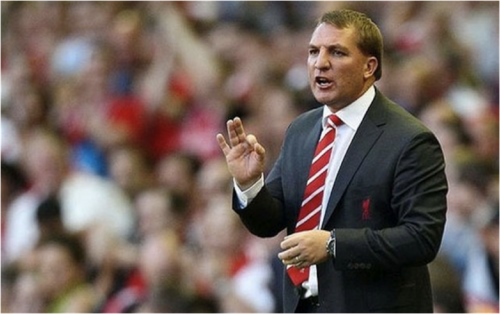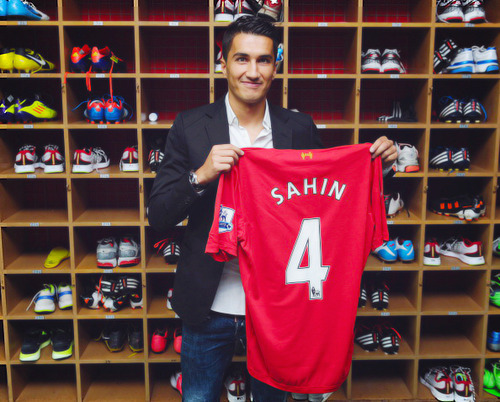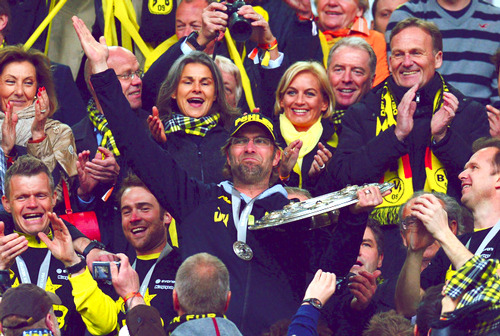Amongst all its history, Liverpool enters Year Zero
Amongst all its history, Liverpool enters Year Zero


And so, it has come to this. 22 years after Kenny Dalglish left his throne vacant, with Liverpool still high upon the mountain top of world football, the Reds have been left staring at the dawn of a new, but uncertain, era after the second coming of the king failed to deliver the success of his first. Charged with the task of ushering the club into said era has been the youthful Brendan Rodgers, a man whose past is highlighted by, amongst other things, his tenure as a coach at Chelsea under Jose Mourinho, and whose obsession with ball retention has instantly made Liverpool a club to keep a keen eye on.
It may have taken a terrible league position, their worst in 18 years, and some controversial backlash which invited axe wielding - sacking King Kenny Dalglish was never going to be straightforward - to prompt the club into making their most recent managerial appointment. But in many ways, this is exactly where the club’s owners want the club to be.
When John Henry and Tom Werner led the Fenway Sports Group (FSG) takeover at, though it may be easy to forget, administration-threatened Liverpool, their intentions in regards to the direction of the club, whether through quotation or speculation, had become clear. John Henry’s “I am not a sheik” declaration spoke volumes of a man who was not keen on recklessly splashing cash at his problems, of which, revolutionizing Liverpool had instantly become one. Spending dollars must be done wisely, he said, and it’d soon become apparent that he wanted to place the trust of such spending in the hands of a young, up and coming manager as links to the likes of Andre Villas-Boas, Didier Deschamps and Jurgen Klopp soon persisted.
Today, albeit after 18 months of deviating from the above mentioned sentiments and with more baggage added to a club that already has its fair share of issue-filled luggage, Liverpool finally look the part of an FSG owned club. In the same breath as the message meant to distinguish himself from Manchester City owner Sheik Mansour, Henry said, “We have to be smart, bold, and aggressive.” With deals that include the signing of one significant fee-yielding player on relatively modest wages, a 21-year old Italian international for £10m, with loan deals for players from the Clasico clubs mooted, and shrewd signings being considered, like that of Oussama Asseidi, Liverpool, whether forced by circumstance or done through intent, look to have aimed at getting smarter in the transfer market. They’ve been bold in appointment a young manager with just one year of experience in England’s top flight, and the manager, in turn, has been aggressive in what he has set out to accomplish with his team.
Rodgers has made his aspirations clear, what he lacks in funds he aims to make up for in tactically superiority, which he intimated in his per-opening match presser. “It’s important that if you don’t have the money, you have got to be different,” said the former Swansea City gaffer. “That’s the idea of trying to find a style. One of the ways in which we can hopefully gain an edge is in how we play and control and dominate games.”
If there is any doubt in regards to just how practical Rodgers’ thinking is, consideration of recent success stories of paradigm shifting managers should provide vindication. Rudi Garcia at Lille and the aforementioned Jurgen Klopp at Borussia Dortmund have essentially accomplished the type of feat that Rodgers has set his sights on.

Both managers, against the odds, triumphed over the, wealthier, standard bearers in their respective leagues. Both managers, despite seeing star players leave, have been able to consolidate their success, with Lille’s continued participation in the Champions League, after the domestic double success of two seasons ago, and Dortmund’s quest for a three-peat in the Bundesliga. Most importantly though, especially with the ambitions of Liverpool’s new manager in mind, both Garcia and Klopp engineered revivals at their clubs through the use of possession oriented football, tactically tweaked to their respective liking.
Big players have come and gone since Lille and Dortmund have emerged, but the philosophy at both clubs has remained the same, and that philosophy has always manifested itself on the pitch. The sense of continuity in turn has aided in keeping the wheels of a successful machine in motion, regardless of the names on back of the shirts. If their success has shown anything, it’s that the implementation of a set style, or a system if you will, is a big step towards maximizing the potential of a squad. The second, and subsequent, huge step, as such projects usually go, is finding and/or adapting players to the system.

It is at this point that Rodgers finds himself in his embryonic career at Anfield, and it is at this point that he may also find himself handicapped by the errors of those who came before him. Out of the eight arrivals that resulted from £100m+ gross spend of the previous year, only Luis Suarez and Jose Enrique can claim to have assured places in the First XI. As for the rest, some main actors in the drama that was Liverpool’s 2011-12 season, others cast with supporting roles, there are questions regarding the part they can play in the newest Merseyside narrative. The potential for impact each one has is debatable, but the implication is obvious.
While the Reds look towards the future, there are still deficiencies from the past that linger.
With that being said, it should be understood that (excuse the cliché-type statement) progress under Rodgers will take time. But for as much depth as there is to the issues to be rectified from the past, there is height to the ceiling of success over the coming years. Most comforting of all, for fans who long for reassuring evidence in regards to the club’s direction, is that the goal is tangible. The aspiration is real, well-documented, and foreseeable. There is no secret to Rodgers’ game. He wants to create Liverpool in to the passing side of the Premier League, a club for whom possession will be the calling card. What’s more is that the brand of football he favors is the optimum style of football, proven as such by the optimum team of this generation out in Catalonia. The culture that the Northern Irishman wants to impose, defined by a style of football which at its finest is trademarked by incessant pressing and an impeccable understanding for positioning on both sides of the ball, will take a while to have a its full effect, but such effect could be well worth the wait.
And while this is usually the part where a prediction for the club’s season is declared, perhaps the more important issue is the number stamped on the start of the season as opposed to the finish. For this period is the beginning for Liverpool. It is the start of a new era, with the owner having gotten their guy, that will be defined by a make or break push for success. Whether they succeed or fail, this new campaign will be the genesis of a different Liverpool. For all their ambitions and aspirations, and dreams of a future on the mountain top again, this season, for Liverpool Football Club, is year zero.
This piece was written by Joseph Milord, who has contributed to AFR in the past. You can follow Joseph on Twitter at @JoeMilord. Comments below please.







